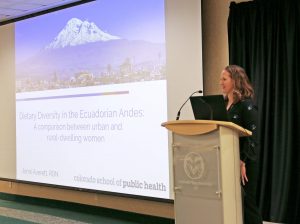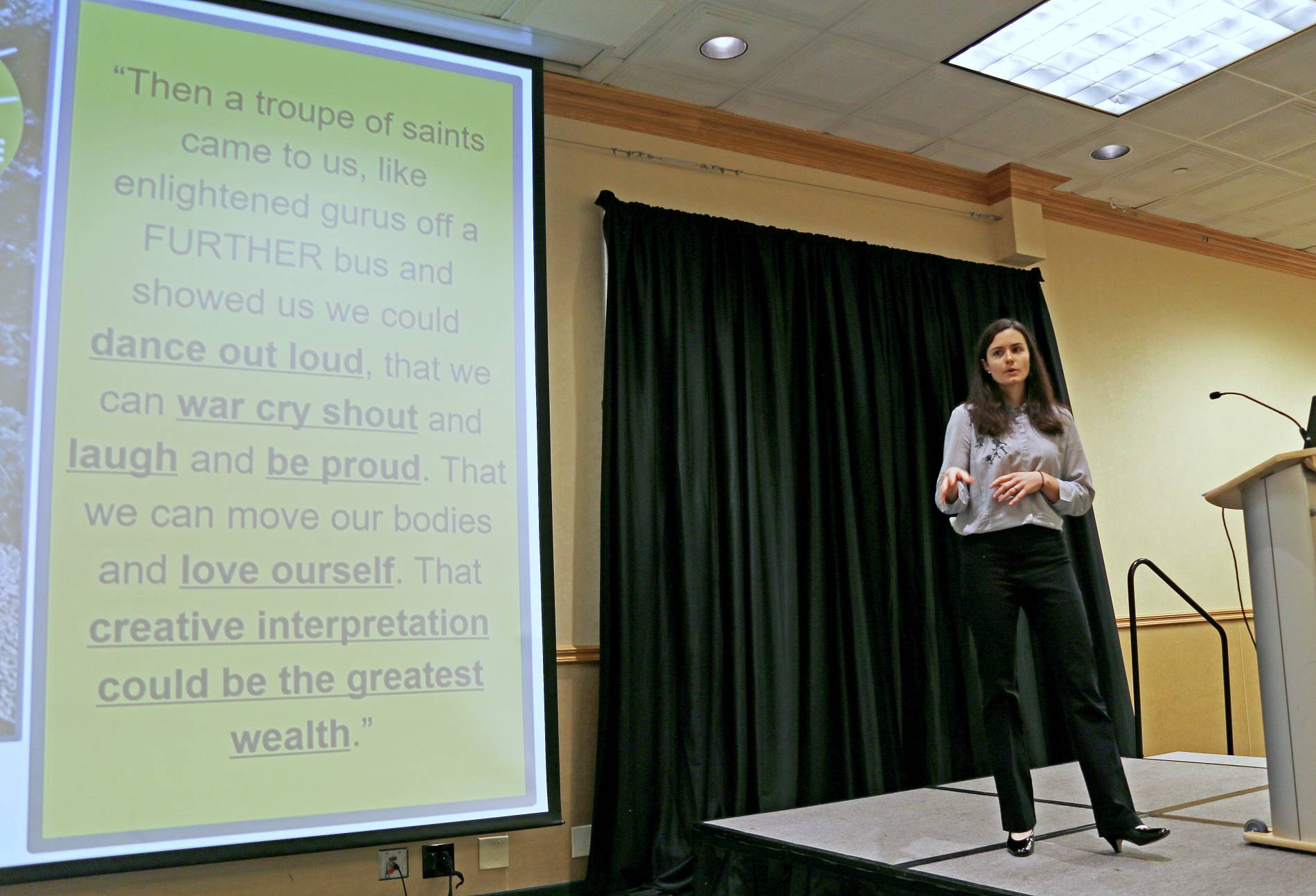Jackie Williamson arrived in Uganda’s Kasese District this summer with the goal of testing as many mothers as possible for hepatitis B virus (HBV). She knew that the prevalence of HBV infection in Uganda is 6.1 percent and she wanted to be part of the solution, focusing on the needs of expecting mothers as part of her capstone project research.
One of her most important lessons, then, and most humbling was realizing “the emotional and financial impacts (of HBV tests) for mothers,” she explained. “Some women may not be able to afford the vaccines if they test positive, so in the future it’s going to be important to stagger testing and vaccination to make sure funding is available to assist these women.”
This was one of the most important conclusions from her capstone project, which she recently presented at the Fall 2018 ColoradoSPH at CSU Public Health Forum. MPH students presented their findings from capstone research that included studies of cathartic movement in women’s prisons, dietary diversity in the Ecuadorean Andes and Chagas surveillance in shelter dogs, among others.
For Morgan Folckomer, who performed her capstone research with Children’s Hospital of Colorado to build a case for implementing a demo kitchen at the hospital, the result of 108 surveys was learning that the biggest barrier preventing families from cooking healthy meals is time – specifically, not having enough of it. Budget was another significant concern, so her recommendations for implementing a demo kitchen includes preparing recipes from low-cost, healthy foods that can be bought at nearby grocery stores.

Jenni Averett, in her research on dietary diversity in the Ecuadorean Andes, found that though 66.2 percent of rural women get the majority of their food from self-cultivation, their diets are less diverse than those of urban women, “placing them at higher risk of micronutrient deficiencies,” Jenni said. “How do we develop approaches that improve dietary diversity for this population?”
In her capstone research, Denise Campbell worked with incarcerated women through the Dance to Be Free program. She studied participant journals from two women’s prison facilities and noted themes that emerged from participation in the dance program: sense of community. Gratitude. Let inner self out. Liberation.
“Before this project, the word I would have used to describe this population is invisible,” Denise said, adding that working on her capstone project not only changed her perspective, but her heart for this population of women.
A common thread among all the capstone presentations was the importance of using the research findings – whether to guide policy, serve as a framework for curricula or, most fundamentally, aid individuals and communities in progressing toward improved health.

